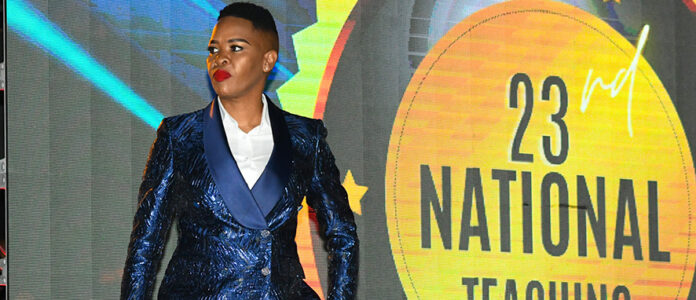North West Education MEC Viola Motsumi and her department have been tapped as lead partners for the 2026 Special Olympics South Africa National Summer Games, a high-profile event set to transform opportunities for pupils with intellectual disabilities and ignite a spirit of community pride across Rustenburg and beyond.
Scheduled for the last quarter of 2026, the national sporting spectacle is set to bring together 800 athletes and coaches from all nine provinces, providing unprecedented opportunities for disabled pupils across the region.
For many, it will be the singular opportunity to compete nationally and possibly qualify for the 2027 Special Olympics World Summer Games in Santiago, Chile.
Special Olympics South Africa, led by chairperson and former ANC treasurer-general Dr Mathews Phosa, is a globally affiliated movement dedicated to empowering individuals with intellectual disabilities through sport, health screenings and leadership development.
The organisation currently serves over 50 000 registered athletes nationwide, establishing itself as a leader in disability sports advocacy and community upliftment. Under Phosa’s leadership, the organisation has become “one of the most impactful disability-focused organisations in the country”, according to the concept document.
For Motsumi, whose department has weathered recent scrutiny over spending priorities related to this same upcoming event, the moment offers a pivotal chance to redirect the spotlight onto the needs and aspirations of the province’s most vulnerable pupils.
Earlier this year, she led a team invited to the Special Olympics World Winter Games in Turin, Italy, to conduct a benchmark exercise for the 2026 Rustenburg Juggernaut, but these events triggered fury from opposition benches and critics.
However, the organisers are unfazed. “With combined efforts from government departments and aligned stakeholders, we can deliver an inclusive sporting event for individuals with intellectual disabilities,” reads the official Special Olympics SA concept document sent as a formal invite to the provincial education department.
“This partnership will not only enable smooth logistics and operations but also ensure the dignity, safety, and well-being of all participants.”
Not only will North West play host to a week of intense sporting competition, but it will also bring high-impact health and wellness services right onto the field. According to the concept document, a cornerstone of the games is the “Healthy Athletes” initiative, which delivers “free, comprehensive health screenings to all participating athletes”, including vision, dental, hearing, podiatry and physical therapy checks.
These services are designed to detect and address conditions that might otherwise go untreated in underserved communities.
Phosa and his team are working closely with provincial officials to ensure that the games represent more than just a moment in the sporting calendar: they are a catalyst for “lasting social impact through inclusive education, health, and sport”.
For the North West Department of Education, the event is an opportunity to reset the
narrative.
The concept document, which outlines the multi-department approach, requests support for “accommodation for athletes, coaches and volunteers; sport venues and related facilities; daily meals during the event period; and local transport for delegations and volunteers between venues and accommodation”.
The event will showcase 11 fully inclusive sports codes, from athletics and swimming to netball, equestrian, and rhythmic gymnastics – a newly introduced discipline for 2026.
Each competition will be “guided by trained coaches and technical official assistance from sports-specific federations”, ensuring a world-class experience for the athletes, many of whom will be representing their communities on a national stage for the first time.
For Motsumi, the event could potentially be a pivotal moment in her career, establishing the North West as a leader in inclusive education and sport, and providing opportunities for thousands of disabled children who have traditionally been marginalised.
As Rustenburg readies for the games, the focus shifts to the province’s special needs pupils. This is a chance for them to shine, belong, and be celebrated – not for their disabilities, but for their talent and determination.



